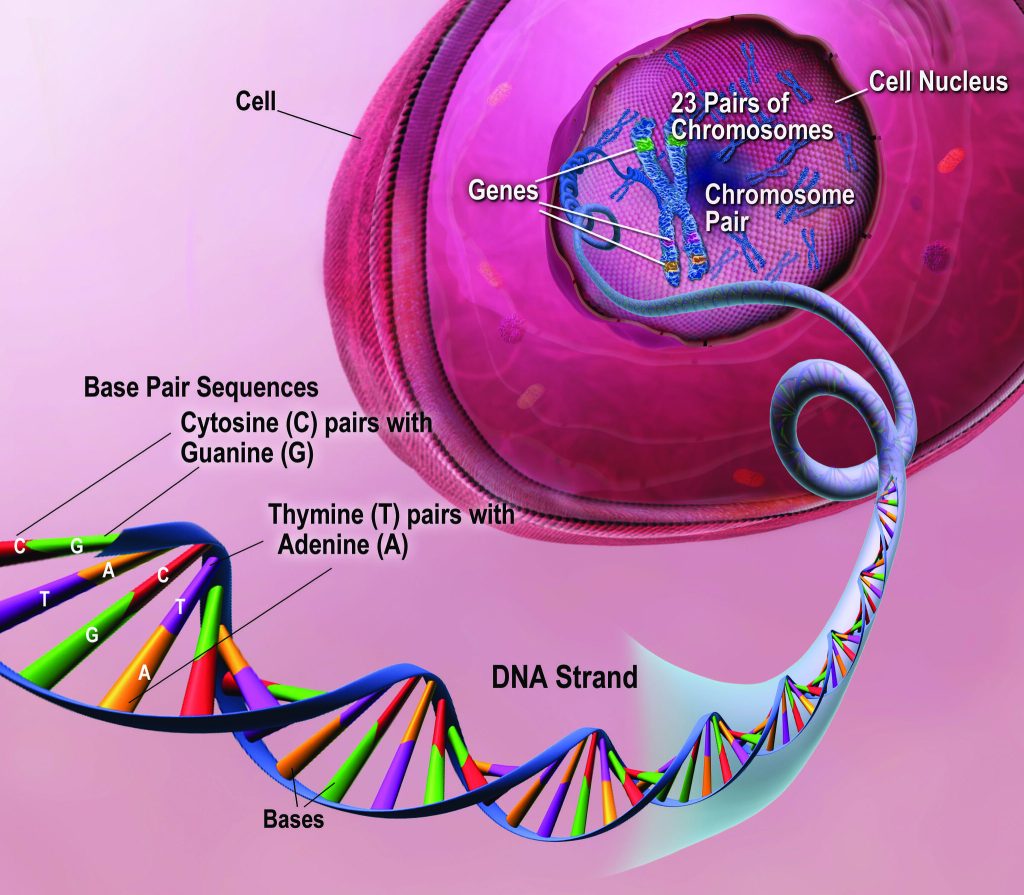1.5 Genetics
Psychologists and neuroscientists are interested in genetics because genetics help to better understand the biological basis that contributes to people’s attitudes and behaviours (Hatemi & McDermott, 2012). As part of this topic, we will give a very brief overview of genetics and two related topics: heredity and epigenetics. You will be directed to some further readings, should you be interested in deepening your knowledge.

A great starting point is Fitzduff’s introduction to genetics and epigenetics (and their relevance for conflict and peace studies) on pages 20-22 in:
Key Reading
Fitzduff, M. (2021). Our brains at war: The neuroscience of conflict and peacebuilding. Oxford University Press. https://doi.org/10.1093/oso/9780197512654.001.0001
Extension:
Read this introduction to genetics and psychology
Heredity
The term heredity refers to the passing on of genetic traits from biological parents to their offspring. Heredity research can help contribute to a better understanding of what makes a person and contribute to answering the question: Are people’s behaviour predominantly shaped by their surroundings and experiences (nurture) or are they simply a result of people’s biology (nature)? This question has been discussed as the nature/ nurture debate for nearly 200 years. The twin-study research method has helped to shed some light on the role of genetics versus the role of the environment (Burger, 2019). Nevertheless, many researchers agree that it is frequently impossible to clearly distinguish the effect of the environment and people’s genes on their behaviours and personal characteristics because both are so closely intertwined.
Therefore, the debate about the impact of nature or nurture on a person’s behaviours, thoughts, feelings and personality overall is likely to persist for a long time.
Extension:
If you want to learn more about the basics of genetics and heredity, please watch Heredity: Crash Course Biology #9 [10:18]:
Extension:
If you want more information about the nature-nurture discussion, see the chapter The Nature-Nurture Question.
Epigenetics
Researchers have been increasingly involved in exploring inheritance mechanisms called epigenetics. Epigenetics involves the activation or deactivation of various gene expressions (you would have learned about gene expression if you watched the video Heredity: Crash Course Biology above), resulting in changes in appearances and functions of different body parts and traits of a person. In more simple terms, this means that while a person’s DNA does not change, changes to the way that the person’s genes are expressed can lead to variation in their appearance and behaviours.

Extension:
You may also want to check this video for a more detailed biological explanation of how epigenetics works [4:10]:
Extension:
To deepen your knowledge of epigenetics and what it means for psychology, you may see the following resource:

